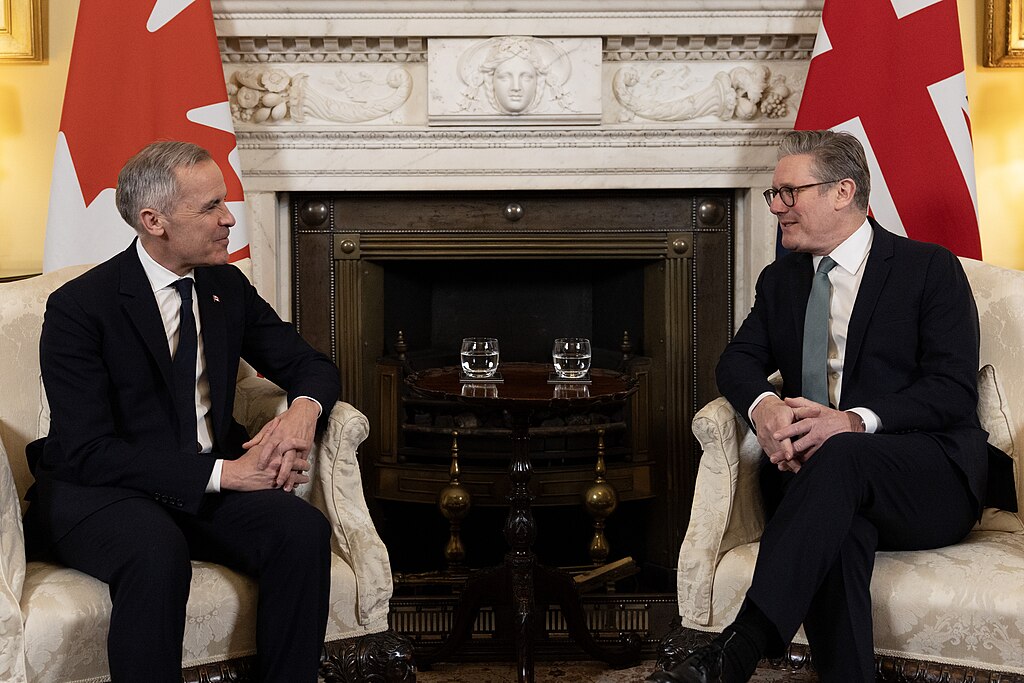299

Prime Minister Keir Starmer meets with Canada's Prime Minister Mark Carney for a bilateral meeting in 10 Downing Street. Picture by Lauren Hurley / No 10 Downing Street




